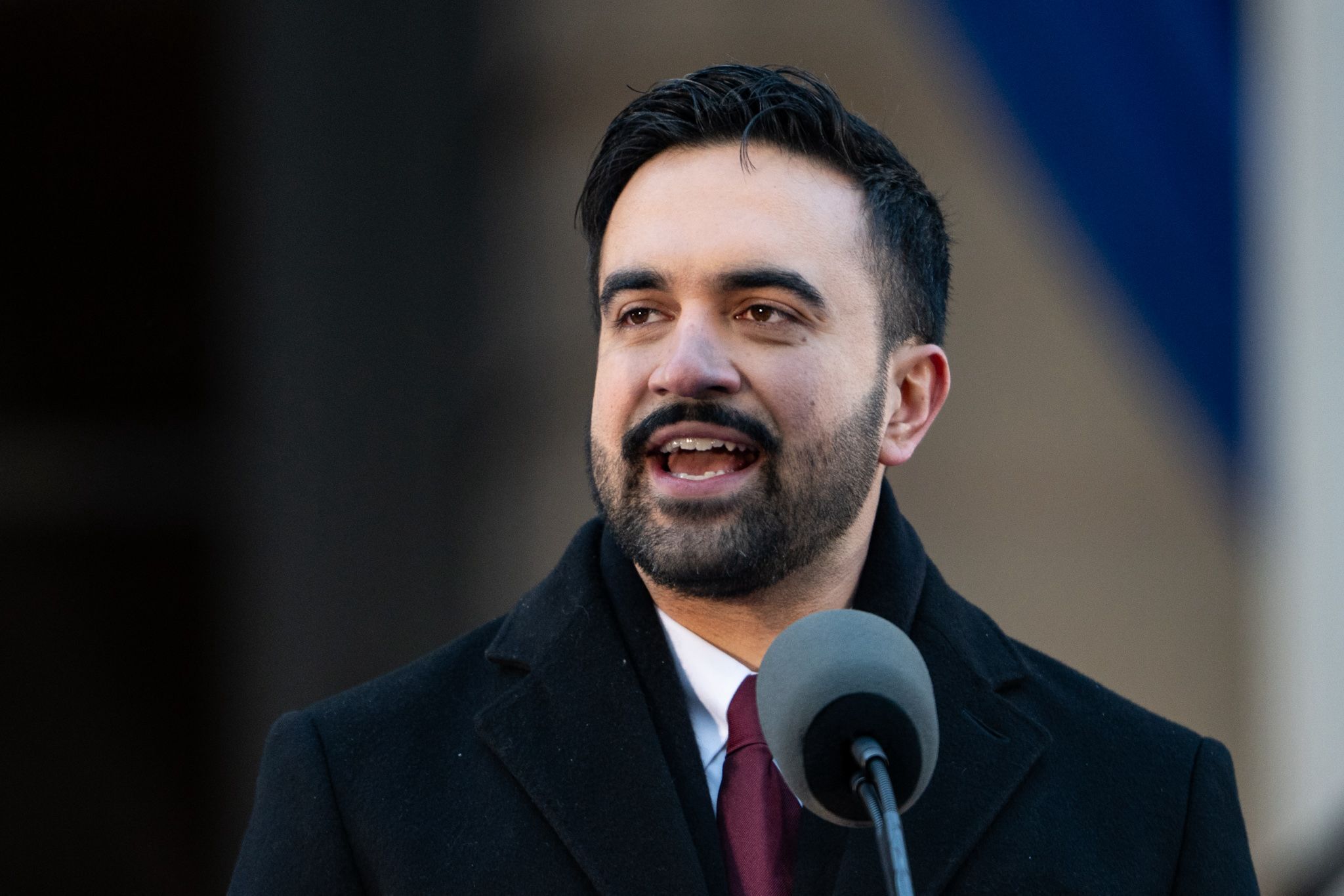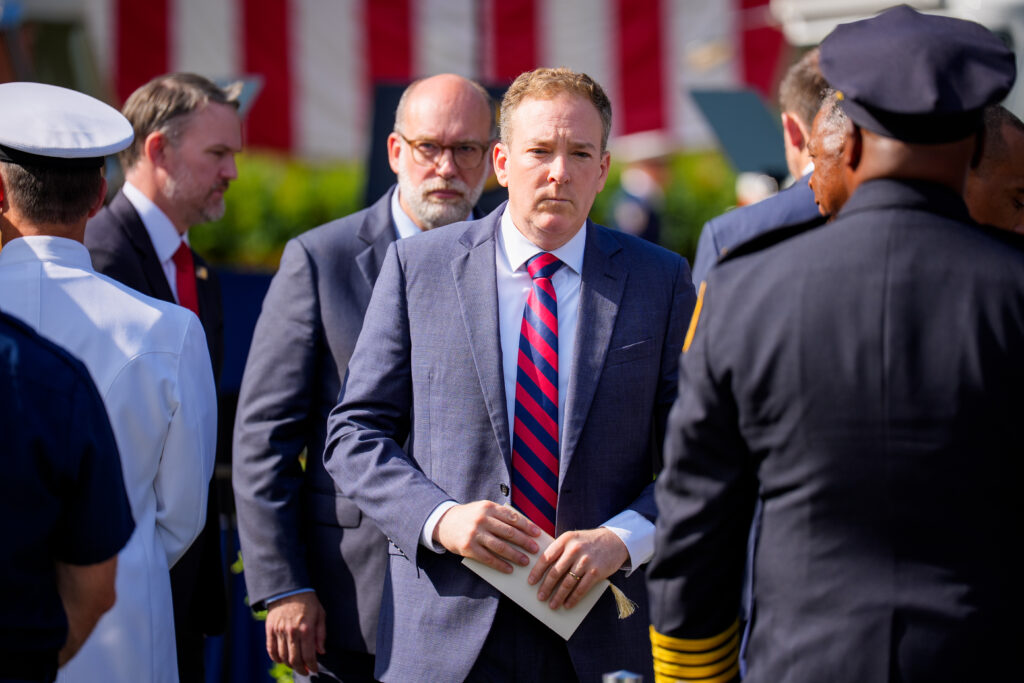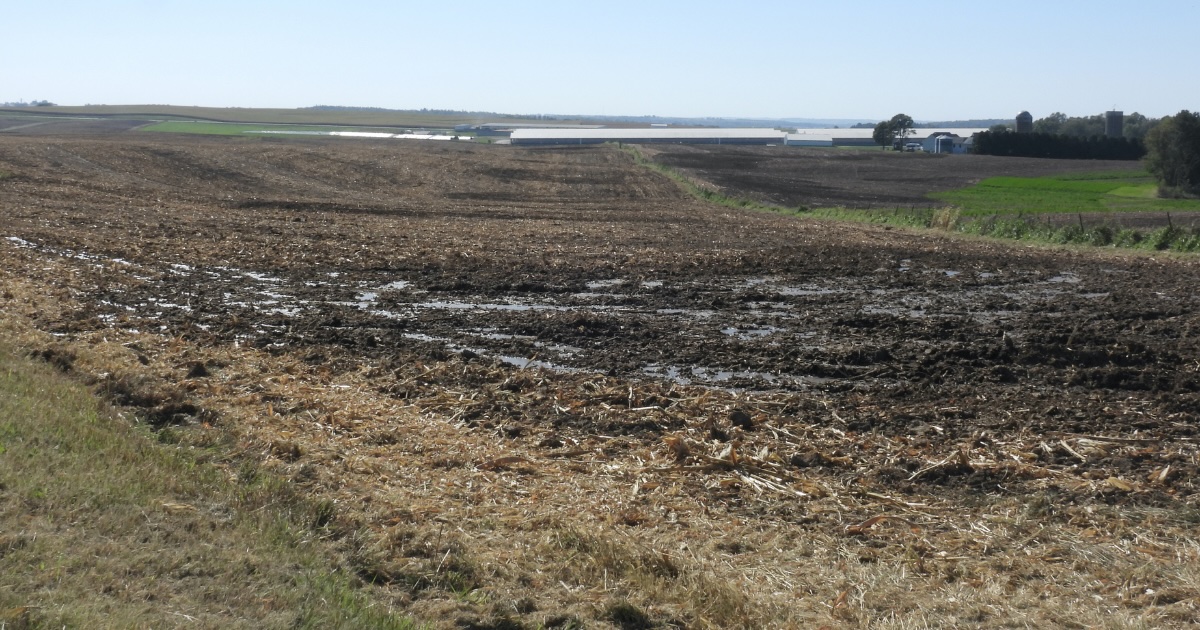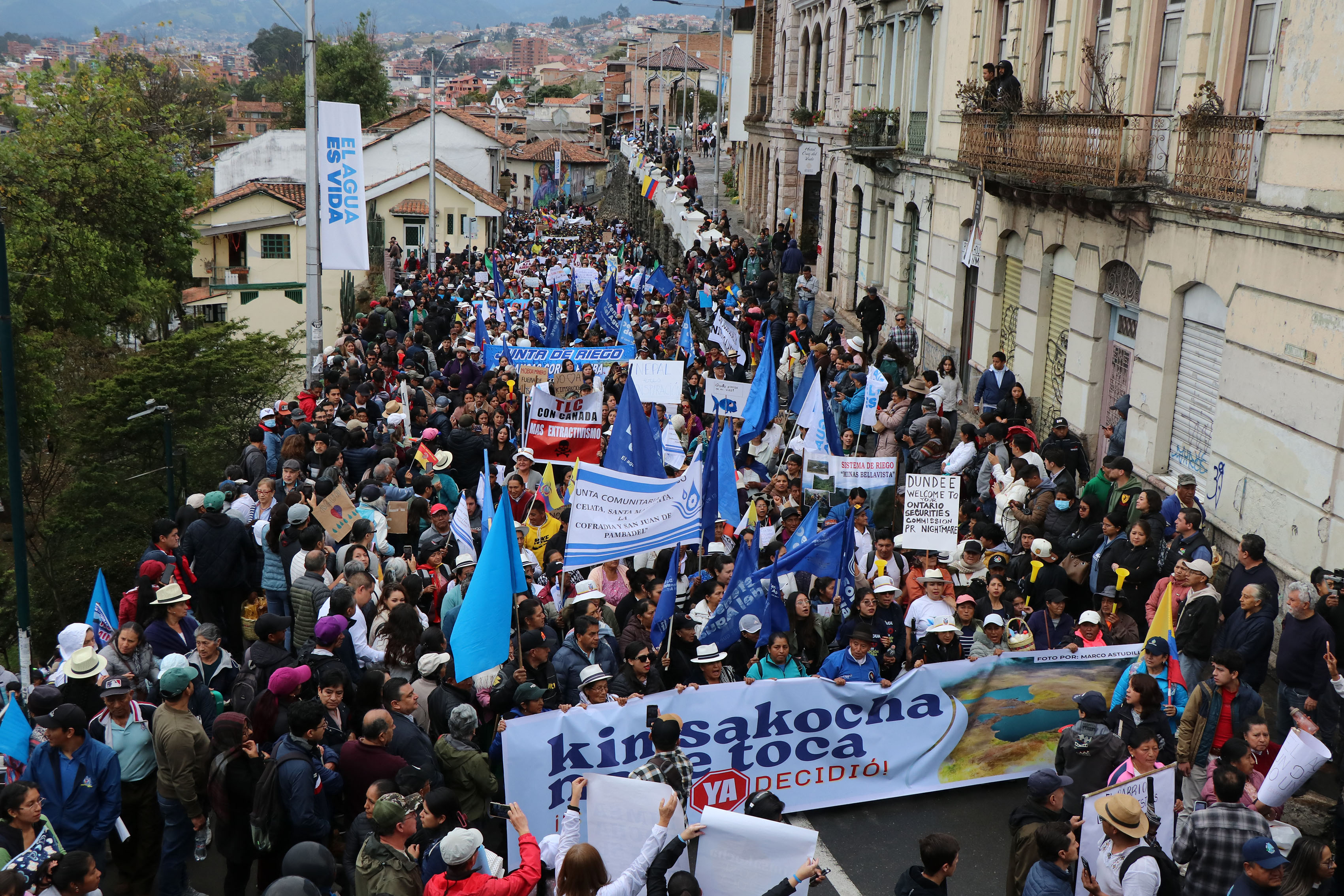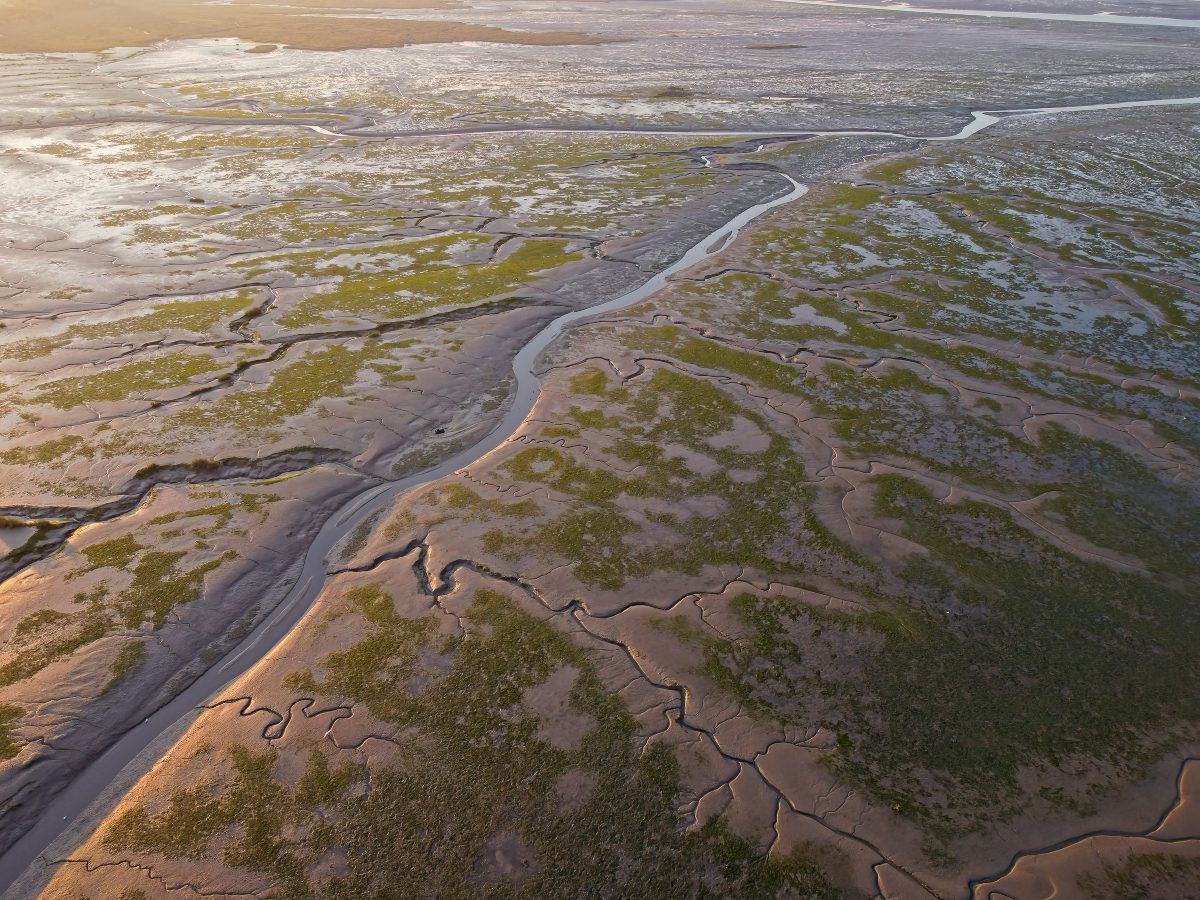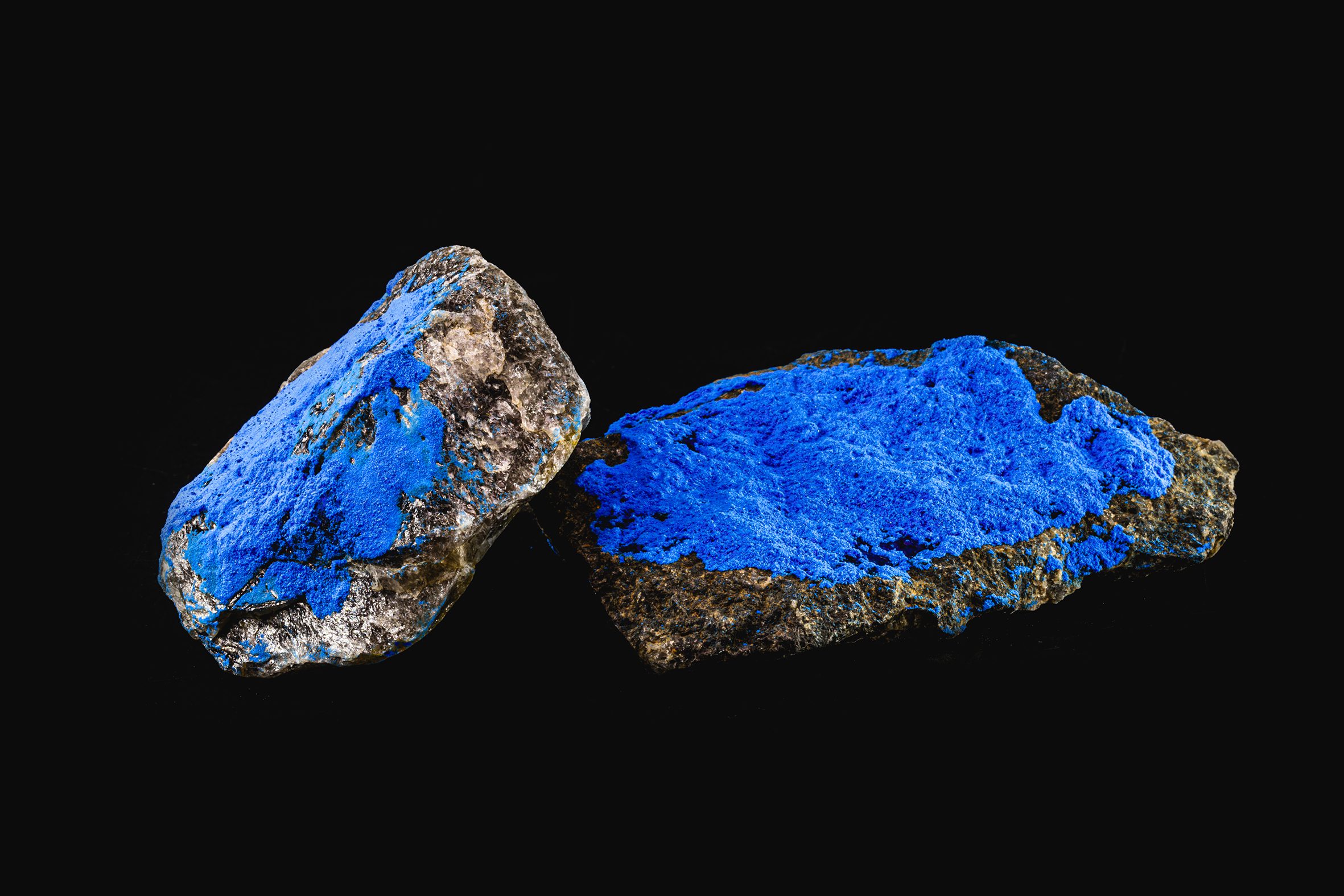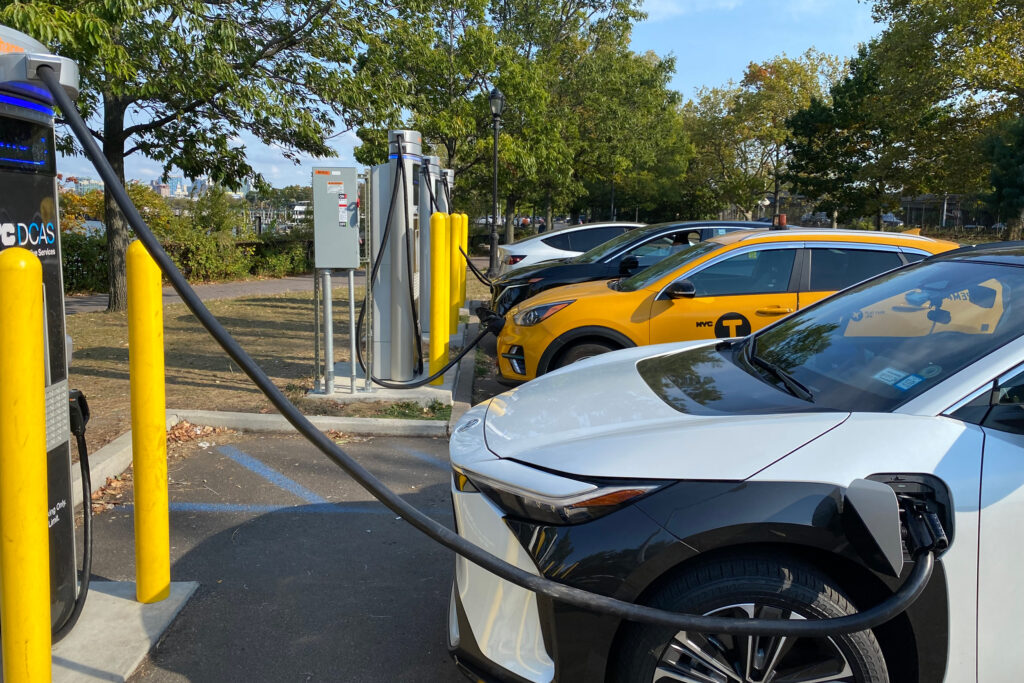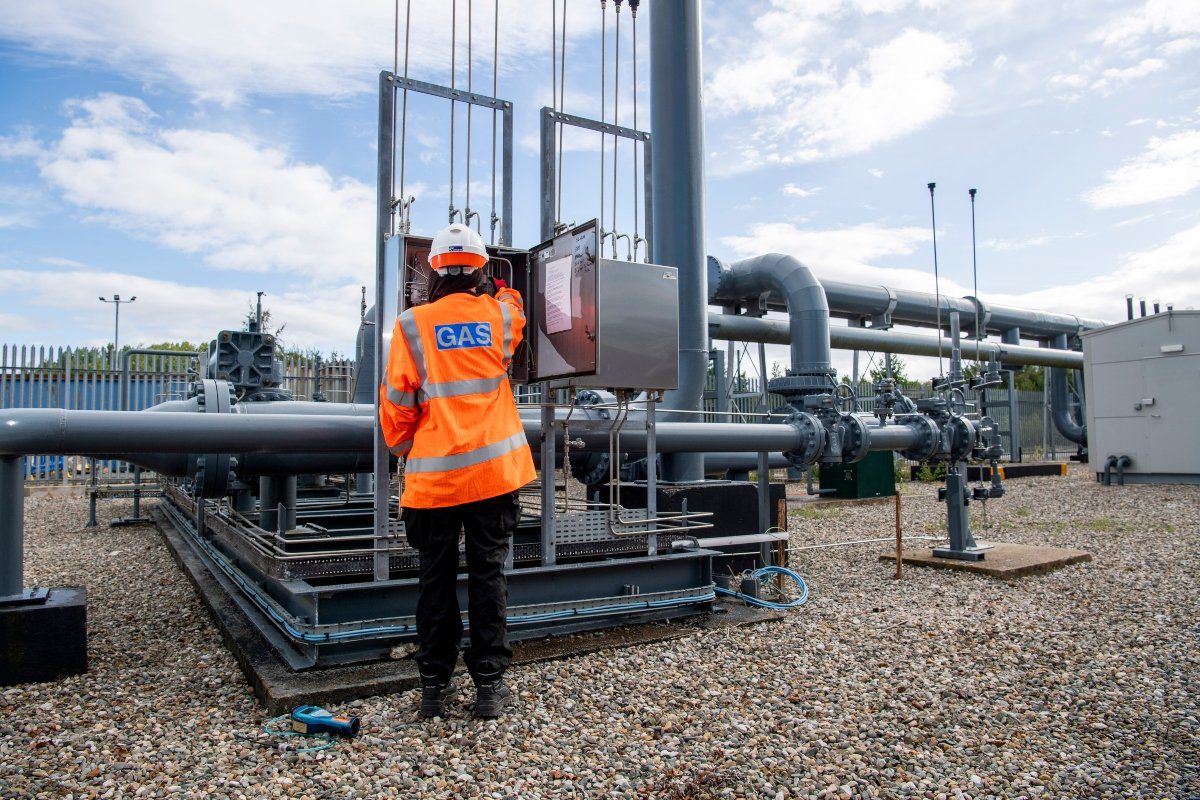Rodrigue Mugaruka Katembo was watching television in his living room in May when a group of motorcyclists pulled up outside the gates of his home in the Democratic Republic of Congo and the riders fired nine bullets into the house.
Seven bullets struck his living room, where he and his family were watching television. Two more entered his bedroom. No one was hurt.
Katembo didn’t find out who fired the shots, but it wasn’t the first time he’s been targeted for his work as a park ranger, protecting endangered species and opposing extraction in Africa’s oldest national park.
Katembo leads anti-poaching and biodiversity monitoring at Virunga National Park, a 3,000 square mile conservation project that holds 44 endangered species and provides water, electricity and jobs to surrounding communities.
Explore the latest news about what’s at stake for the climate during this election season.
Best known for his undercover investigation of the British oil company Soco, which helped put pressure on the company to ultimately halt oil exploration in Virunga in 2014, Katembo has been kidnapped and tortured and has survived multiple assasination attempts. He has faced persecution from the government of the DRC, poachers, warlords and extractive industries.
Now, he and his colleague Emmanuel Bahati Lukuu are facing murder, arson and armed robbery charges in the Military Court of North Kivu, charges that their legal team says are fabricated in an effort to discourage their work protecting Virunga and its boundaries, including from oil, gas and mineral extraction and the devastation that environmental advocates say such operations would cause. The attack on his home last May came the night before he had a court appearance in the case against him.
“Of course there are dangers to our work right now in the national park of Virunga, but we’re a team, we are determined to fight against deforestation, against oil and mining exploitation in the park,” Katembo told Inside Climate News in French. “Some of my colleagues lost their lives defending the biodiversity of the park of Virunga, so saying that there are dangers and that I should remove myself from these dangers, it would be like spitting on the memory of my colleagues who have disappeared during this fight.”
Katembo and Lukuu are two of the 16 climate and environmental defenders highlighted in a new report from Global Climate Legal Defense (CliDef), an organization providing legal support to climate activists around the world. The report presents a broad array of dangers faced by advocates and lawyers, most of whom are receiving legal support from the organization. The report highlights stories of activists from Brazil, Canada, DRC, Egypt, India, Liberia, Mexico, Mozambique, the Philippines, Uganda and the United Kingdom, who are facing threats, intimidation, violence and targeted legal retaliation.
Growing repression of environmental defenders around the world has been condemned by United Nations human rights experts, and Global Witness reported last month that at least 196 environmental activists were murdered last year.
CliDef’s report launched alongside an exhibit at the Ford Foundation in New York City at the end of NYC Climate Week, where six people featured in the report—including Katembo and CliDef’s founder, lawyer Alfred Brownell—spoke about their experiences and the need for international mobilization to protect environmental advocates from persecution.


Brownell, who helped farmers and Indigenous leaders in Liberia take on palm oil companies accused of land grabs and deforestation, has himself survived an assassination attempt. He was forced to flee the country after his office was ransacked by law enforcement officers in 2016 and he learned that security forces were planning an ambush.
“The defenders in this room, in this report, are the firewalls responding to the climate crisis, upholding democracy’s values, and an engine for a renewable energy transition,” Brownell said at the launch. “If we are sued into silence, who will fight for the planet, its people and our future? There is no climate solution without climate defenders, and legal threats to climate defenders make it impossible for us to do our work.”
A Pipeline and Persecution
Anthony Odur, a Ugandan lawyer who is part of a team representing people being displaced by the East African Crude Oil Pipeline (EACOP), a project led by French multinational oil company TotalEnergies, was among the defenders who spoke.
Odur has faced threats, intimidation and harassment for his work. Last year he was chased by someone wielding a gun, and when he reported the incident to authorities, he received no response, he said.


Human Rights Watch has estimated that EACOP will displace more than 100,000 individuals living in communities along the pipeline’s route. TotalEnergies disputed this figure and told Inside Climate News that number refers to all individuals owning land, including farmland or grazing land, on the pipeline route. The energy company estimated that approximately 5,000 people would be “rehoused” due to the pipeline.
“The affected families continue to live on and farm their land until they receive full compensation, after which they will be relocated. Only at this stage will they be given three month’s notice to vacate the area,” a Total spokesperson wrote in an email. “Aside from the multiple direct and indirect jobs created, TotalEnergies’ projects will open up economic opportunities for the local population.”
This month, more than 80 households in districts of Lwengo, Kyotera and Rakai received court orders to vacate land for EACOP, despite households arguing that the compensation they were offered was too low to account for the market value of their land.
“It appears the judicial system is under capture, because the judiciary is supposed to protect the people, but we don’t see that really coming out,” Odur told Inside Climate News.
Climate activists opposing EACOP have protested the pipeline in Uganda and around the world, coordinating with global pressure campaigns calling on insurers and financiers to back out of their business relationships with the project. So far, according to information compiled by Stop EACOP, 29 insurance companies have said they are not insuring and do not plan to insure the project, some citing environmental, social and governance principles. In Uganda, protesters have faced brutality, harassment and jail time for peacefully protesting the pipeline.
A spokesperson for TotalEnergies said that the company “does not tolerate threats or attacks against those who peacefully defend and promote human rights,” and said that its activities in the country have been consistent with Ugandan law.
“What the international community has to do for the community members is to ask these honest questions to [TotalEnergies],” Odur said. “There are many community members who are really very dissatisfied with how Total is actually using the government of Uganda to dispossess them.”
A Politico investigation published in September reported that Mozambican soldiers operating out of TotalEnergies’ liquified natural gas plant in Mozambique abducted and tortured between 180 and 250 villagers seeking protection from conflict between the army and militants in 2021, killing all but 26 over a three-month detention. The region has also been the site of rebel violence, including thousands of killings, many in mass beheadings.
TotalEnergies and Mozambique LNG, which the company operates and partly owns, have both denied any knowledge of “the alleged events described in the article.” Construction of the LNG plant has been suspended “due to the security situation in the country.”
Another climate activist included in the report is Dipti Bhatnagar, whose organization has worked in Mozambique’s Cabo Delgado since 2007 fighting illegal logging and extractive industries. Bhatnagar said that the discovery of large gas reserves in the country over the past two decades has led to increased violence and instability that has received little international attention.
“The conflict and insurgency and militarization that this gas rush has fueled in northern Mozambique, in Cabo Delgado, has been really horrific, and people are paying for it with their lives,” Bhatnagar said. “Nobody knows about it, and that’s because our places are so invisibilized.”


Michel Forst, U.N. special rapporteur for environmental defenders, also joined the report launch, which was preceded by a panel featuring Colombia’s minister of environment and sustainable development, Susana Muhamad; Brazil’s minister of Indigenous peoples, Sônia Guajajara; and the Liberian Environmental Protection Agency’s executive director, Emmanuel Yarkpawalo, among others.
Muhamad spoke about the need for the clean energy transition to include a global focus on protecting rights of nature and victims of land and extraction-related conflicts. She noted that the Global Witness report ranked Colombia as the country with the most recorded killings of environmental defenders last year, 79—more than any country in any year since the reports began in 2012.
“If we don’t put human rights at the center, the [climate] transition can be as brutal as development has been for many of the territories and the people that are in those territories,” Muhamad said.
Experts say Global Witness’s figures are likely an undercounting of environmental defender deaths. Brownell called for increased resources to track such deaths in countries where those records are not reliable or do not exist. He noted that Colombia and Latin America appear to have the worst record of killings of environmental defenders because activists there keep track of them, but other areas are likely even deadlier.
This story is funded by readers like you.
Our nonprofit newsroom provides award-winning climate coverage free of charge and advertising. We rely on donations from readers like you to keep going. Please donate now to support our work.
Donate Now
CliDef also calls attention to a growing trend of strategic lawsuits against public participation, or SLAPP suits, intended to intimidate dissent or tie up opponents in costly, meritless legal processes. Fossil fuel companies have frequently been accused of SLAPP suits against environmental activists opposing pipelines and other infrastructure projects.
The proliferation of critical infrastructure laws in the U.S. that criminalize protest activity at oil and gas projects has opened doors for increasing crackdowns on environmental activism, like the criminal charges and costly civil lawsuits brought against protesters fighting the Mountain Valley Pipeline.
Protecting Climate Defenders
CliDef is calling for governments to implement anti-SLAPP legislation to protect climate defenders from malicious or harassing suits, and to use or establish mechanisms to hear complaints from defenders and offer redress.
At the report launch, international advocates also discussed existing international initiatives to put protections in place for human rights defenders, like the Escazú agreement (formally known as the Regional Agreement on Access to Information, Public Participation and Justice in Environmental Matters in Latin America and the Caribbean). The U.N. treaty, which went into force in 2021 and is now ratified by 17 countries in the region, aims to increase public access to information about environmental decision-making and recognizes the rights of people working for environmental protection.


In the U.S., advocates are also working to increase protections for environmental activists abroad. Last year, a bill was introduced in the U.S. Senate called the Human Rights Defenders Protection Act that would increase the number of human rights officers in the Foreign Service and provide new visa pathways to enter the U.S for environmental, climate and land-rights advocates facing repression internationally.
The bill, sponsored by U.S. Sen. Benjamin Cardin (D-Md.), has been referred to the Senate Committee on Foreign Relations. Andrew Bogrand, senior policy advisor for natural resource justice at the international nonprofit Oxfam and a proponent of the bill, said the results of November’s election will likely influence its ability to pass.
Bogrand hopes that the bill will decrease governmental siloes that keep human rights issues limited to particular agencies or personnel.
“The U.S. government has to consider the risks that defenders face across agencies. It can’t just be one person at the State Department … or one person at one embassy in a country,” Bogrand said. “In some ways it’s a cultural shift. … There needs to be a wider movement in general.”
Many of the activists present at the report launch emphasized the need for increased international attention on communities impacted by fossil fuel extraction and mining, both for raising awareness and to implement existing mechanisms of international law to hold corporations and government actors accountable for violating human rights.
“We hope that the international community can say no to military activity inside of the park, no to the illegal exploitation of natural resources, no to deforestation, no to oil exploitation in the park, no to the expansion of the city of Goma into the park,” Katembo said. “We’d also like that these warlords and high-ranking officials trying to manipulate the population to destroy the park be one day investigated by the international criminal court. Because in the end, if we want to preserve the planet, we need to punish those who use their power to destroy communal goods.”
About This Story
Perhaps you noticed: This story, like all the news we publish, is free to read. That’s because Inside Climate News is a 501c3 nonprofit organization. We do not charge a subscription fee, lock our news behind a paywall, or clutter our website with ads. We make our news on climate and the environment freely available to you and anyone who wants it.
That’s not all. We also share our news for free with scores of other media organizations around the country. Many of them can’t afford to do environmental journalism of their own. We’ve built bureaus from coast to coast to report local stories, collaborate with local newsrooms and co-publish articles so that this vital work is shared as widely as possible.
Two of us launched ICN in 2007. Six years later we earned a Pulitzer Prize for National Reporting, and now we run the oldest and largest dedicated climate newsroom in the nation. We tell the story in all its complexity. We hold polluters accountable. We expose environmental injustice. We debunk misinformation. We scrutinize solutions and inspire action.
Donations from readers like you fund every aspect of what we do. If you don’t already, will you support our ongoing work, our reporting on the biggest crisis facing our planet, and help us reach even more readers in more places?
Please take a moment to make a tax-deductible donation. Every one of them makes a difference.
Thank you,







